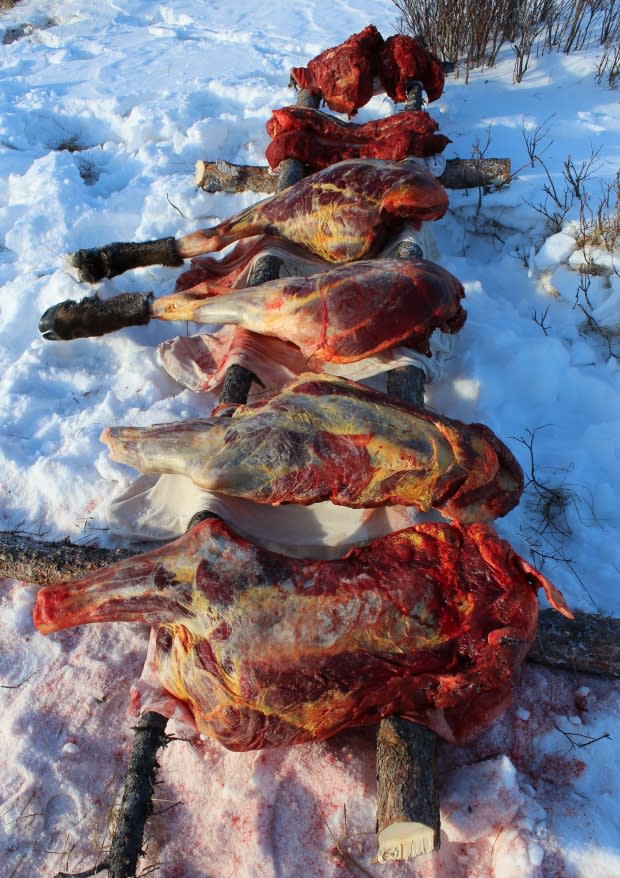Think before you post to social media, hunters urge fellow hunters
On social media, history sometimes repeats itself.
Hunter shoots animal, hunter posts photo, photo sparks public outcry, post goes viral.
The rest of the hunting community, meanwhile, does a collective facepalm.
The worst thing a hunter can do is to turn a non-hunter into an anti-hunter by giving them the wrong impression of hunting, writes Mark Hall on his blog, Hunter Conservationist.
The "wrong impression" being that all hunters care about is killing and possessing trophies that feed their egos, which of course isn't true, he says.
"Hunters are losing control of the hunting narrative, and the way social media is being used is contributing to our demise," says Hall.
Speaking by phone, Hall, explains that the challenge with posting a single photo online is that it allows viewers to draw their own conclusions about the scenario, as well as the hunter's motives and character. The public also can't tell from one photo if the meat was used or not.
Hall says hunters, and especially those in the public spotlight, need to realize that what they share will either enhance or hurt the reputation of other hunters.
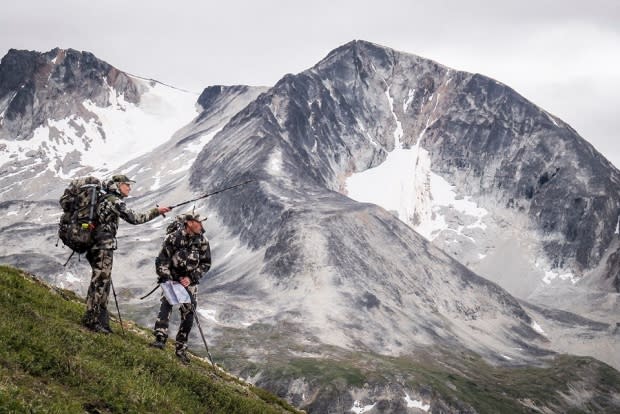
He says Tim Brent, the former professional hockey player who posted a picture of a grizzly he shot in the Yukon online, had to have known his post was going to "blow up like a volcano," because of the public's divided feelings about bear hunting (bear is the only animal in the Yukon for which harvesting the meat is not a requirement) and Brent's online reach.
Brent has tens of thousands of social media followers and was hunting with his father-in-law, Jim Shockey, a TV hunting star. His posts were destined to reach a large audience.
Brent's hunt was legal, as far as we know. That's not the problem. The problem is the damage some hunting photos — particularly those featuring a dead animal front and centre — can do to the public's perception of hunting.
Hunters facing an 'image issue'
"We [hunters] have an image issue right now, there's no hiding that fact," said Adam Janke, editor of Journal of Mountain Hunting.
"Like anything else on social media, the worst gets the most attention, as opposed to the best examples."
Janke says it's important for the hunting community to understand that hunting is misunderstood by the general public and that it's hard for social media to convey all the planning and effort that goes into it.
"What goes into putting a deer, a moose, an elk, a whatever in your freezer for food for your family, is incredibly complex.
"Social media is a very challenging medium for us to engage ... with the wider community on. We need to be very, very careful and intentional about what we post and what are in those posts."
Janke doesn't think hunters have to stop posting images with the animals they have harvested (these are sometimes referred to as "trophy shots").
Janke suggests, instead, widening the scope.
"I think we must, must stop showing only those images," he said. "And there's a big difference there."
Too many 'macho-man' photos
Janke and Hall say there is a movement in the hunting community to show the bigger picture of hunting: activities that take place in the days and weeks leading up to the moment when an animal is taken.
Tell a story, says Hall. Show people gear preparation and scenery shots.
"If you are a non-hunter, you're seeing hunting in its larger context and you can potentially have a different appreciation for the individuals in the photos or what actually took place."
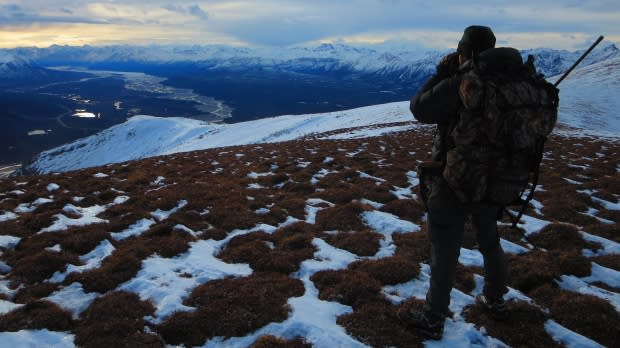
When it comes to taking that final photo of the hunter and the animal, ethical hunters are guided by one of the main tenets of hunting: showing respect to the animal. Of course, that can mean different things to different people.
For some, it means not taking a photo of the harvested animal. For others, it means doing it in a dignified way.
Larry Leigh doesn't post hunting photos to social media but, as a retired hunter education coordinator for the government of Yukon, he knows how it should be done. He says hunters should take the time to position the animal in a natural position and wipe away any blood.
He says the photos or video should be devoid of any "high fives" or whooping.
"It's an exciting moment but it's also a moment of reverence because an animal has just died," Leigh said.
"There are too many macho man photos out there and those are the ones that get us all in trouble."
Some photos 'make you happy'
Robby Dick, a 27-year-old hunter in Ross River, Yukon, says he doesn't post that much to social media, but draws inspiration from others who do. He gives the example of a post he saw from man who was on a solo hunt in the Northwest Territories.
"The way he talked about his struggles and how he overcame getting his first moose after two years of hunting... It makes you happy. When people share stories like that, it's great."
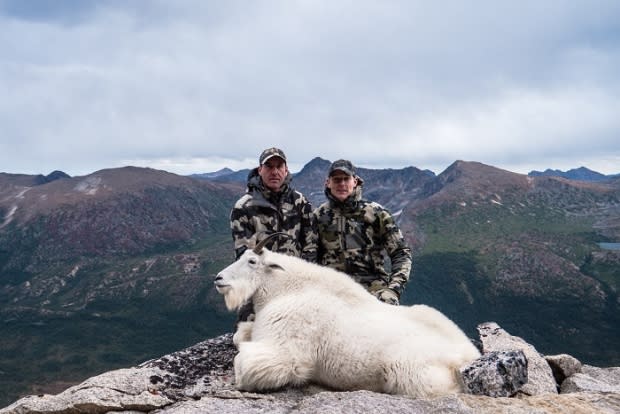
Other people enjoy seeing young people in images, out hunting with their parents.
"It shows its a hand-me-down thing, a traditional thing throughout our history. I think that that can show a great deal of respect," said Larry Leigh.
He says it's also a good idea to show how the meat is being used.
"Making it obvious in a photo or video section that the meat is the precious part of the whole thing."
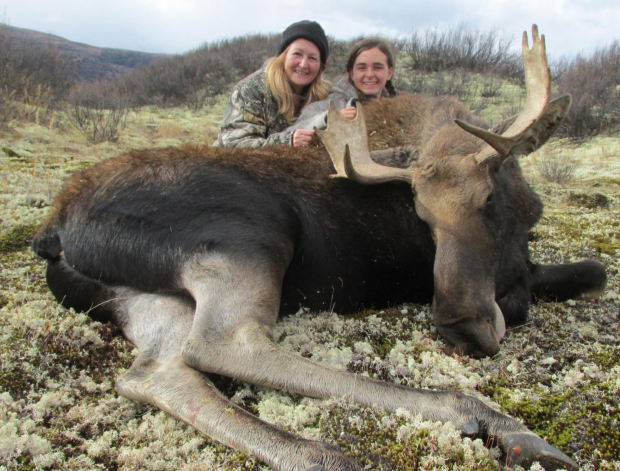
Come over for a roast
Roxanne Stasyszyn, who speaks for Yukon's Department of Environment, says social media is a hot topic in its Hunter Education and Ethics Development courses, which are a requirement for any aspiring hunter in the territory born after 1987.
She says it's understandable for hunters to want to share their experiences and be proud of their hunting success. But she says they are reminded to consider their audience.
"Take into consideration the varying value of the individuals viewing their images."
That's something Adam Janke implores of hunters.
"Ask yourself: Is what I want to post or about to post going to be a net-positive for our entire community, or not?"
He says hunters who disregard that risk hurting the image of all hunters.
Sydney van Loon, a Yukon hunter, says she is very conscious about what she posts to social media and how it will be received.
"How can I show that I'm am ethical hunter and that I appreciate the animal and that I value the animal," she considers.
Van Loon posts a variety of hunting photos on social media including trophy shots, or "tribute" shots, as she call them.
She says she sometimes gets negative reactions from people in her social circle, but they usually have a change of heart.
"When they come over to my house for a roast dinner ... they get why I do it."
